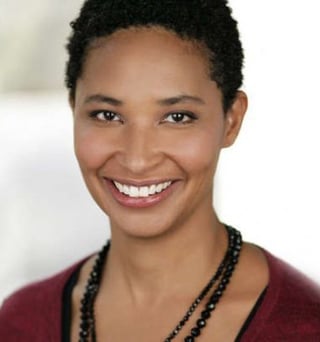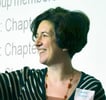In the third installment of our series, "What Makes Democracy Work?" we consider the role of citizens with the help of political philosopher Danielle Allen. Make sure to join the conversation using the hashtag #DemocracyAndUs!
 One of the most obvious answers to the question, “What makes democracy work?” is “citizens.” That’s an essential response but it’s the beginning—not the end—of the conversation. What kinds of participation by citizens help strengthen democracy?
One of the most obvious answers to the question, “What makes democracy work?” is “citizens.” That’s an essential response but it’s the beginning—not the end—of the conversation. What kinds of participation by citizens help strengthen democracy?
This week, we turn to political philosopher Danielle Allen to find answers to this question. As a professor at Harvard University and head of its Edmond J. Safra Center for Ethics, Allen has created a deep and celebrated body of work on civic participation. She describes democracy as “a combination of ideals and institutions that work to put power in the hands of ordinary people.” Further, she argues that the essence of democracy is the active involvement of people:
"Why do we care that governments should rest on the consent of each and every one of us? Being human involves seeking to control one’s life. Achieving that requires having a role in politics because political decisions have such a big impact on our life. The idea of human rights captures the notion that every human being ought to have a chance to control his or her own life, including through political participation."
At a recent Facing History and Ourselves forum for educators, Professor Allen explored different aspects of civic action, including models of agency, the process of action, and strategies used to engage others.
Listen to this audio clip to hear Danielle Allen describe how individuals participate in democracy and the pivotal role of young people in politics.
Help your students consider the importance of their roles in making democracy work with our lesson, "Reflection and Action," which features our interview with Danielle Allen and additional resources for positive civic participation. You can find this lesson, and others, on our "What Makes Democracy Work?" page.


